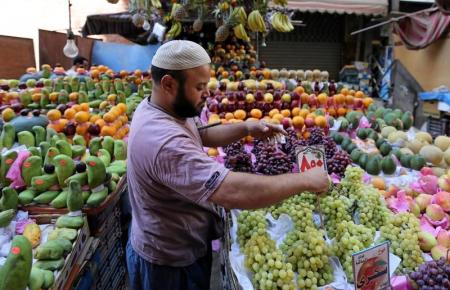
CAIRO (Reuters) – Egypt’s annual urban consumer price inflation soared to its highest level in more than three decades, hitting 30.2 percent in February, the statistics agency CAPMAS said on Thursday.
It’s the fourth consecutive jump in inflation since the central bank abandoned its currency peg to the U.S. dollar on Nov. 3 in a dramatic move that has since seen the currency depreciate roughly by half.
Urban consumer price inflation had reached 28.1 percent in January year-on-year. The February number is the highest level since November 1986, when it reached 30.6 percent, according to Reuters data.
The central bank accompanied the float with a 3 percent interest rate hike to fight inflationary pressures but inflation has been jumping over the past four months and is expected to climb further this year as the government pushes on with economic reforms, including fuel subsidy cuts.
The economic reforms helped Egypt secure a $12 billion loan programme from the International Monetary Fund in November.
President Abdel Fattah al-Sisi is under increasing pressure to revive the economy, keep prices under control and create jobs to avoid a backlash from the public.
Some economists expect the rising inflation to erode spending power, hit economic growth and prompt further hikes to interest rates, which are already up to 15.75 percent.
Egypt’s central bank has held interest rates steady at three monetary policy meetings since the flotation and some economists expect further rate hikes this year. The central bank’s monetary policy committee is due to meet on March 30 to decide on its key rates.
IMF mission chief for Egypt Chris Jarvis said in January the fund expects inflation to begin dropping sharply by the second quarter of 2017.
(Reporting by Asma Alsharif; Editing by Richard Borsuk and Gopakumar Warrier)
